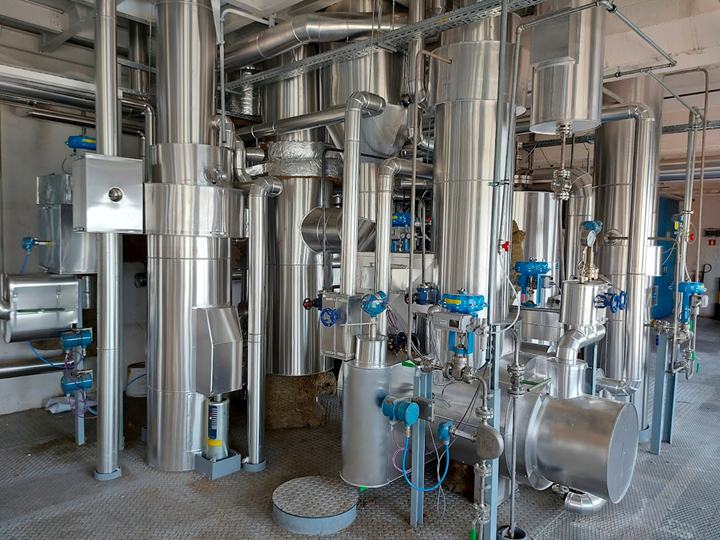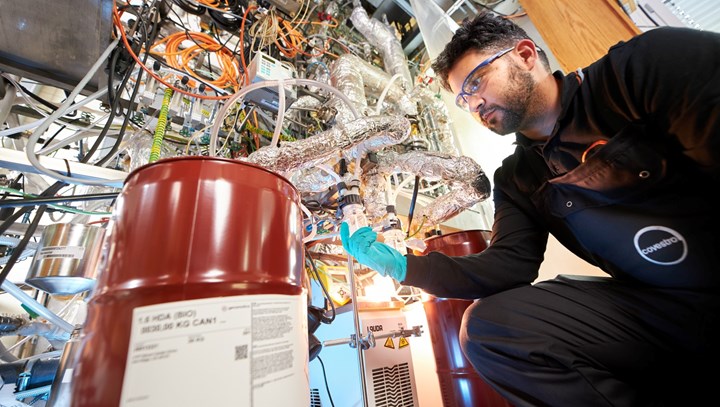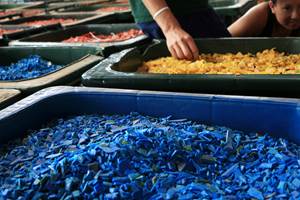Genomatica and Aquafil Start Pre-Commercial Plant-Based Nylon 6 Production
Quantities available for evaluation in nylon applications ranging from yarns for textile and carpet to engineering thermoplastics.

This past March, I reported on San Diego-based biotechnology firm Genomatica (Geno) and its collaboration with Asahi Kasei to commercialize renewably-sourced nylon 66. The strategic partnership entails the use of Genomatica’s biobased HMDA (hexamethylene diamine) building block. Now, the company reports that it is one step closer to commercialization of renewable nylon 6 with its long-term partner Aquafil, Italy’s nylon 6 fiber producer.
The partners produced the first several tons of plant-based nylon-6 building block caprolactam, have converted it to nylon 6 polymer and are now in the process of transforming it for evaluation in nylon applications, ranging from yarns for textile and carpet to engineering plastics for automotive as part of pre-commercial quantities from demonstration production taking place in Europe. Geno also confirmed that they also are currently exploring a range of opportunities in North America and internationally.
Having successfully completed the pilot-scale production runs of 100% plant-based nylon 6, the partners have advanced to production of pre-commercial quantities which will help determine the final design of future commercial plants. The material will go to leading global brands and their value chain partners who are eager to explore and develop renewable products, create showcase goods and test feedback with customers.
“Now, more than ever, global brands are taking action to incorporate sustainable materials into their products. We’re working to build purposeful, traceable and transparent supply chains, in this case for nylon 6, with the goal to provide more sustainable products that consumers demand and material solutions that can help brands achieve their ESG goals,” said Geno’s CEO Christophe Schilling.
Plant-based nylon-6 is just one of Geno’s major product lines on a path to commercialization. The company has executed high impact deals with a range of brands to accelerate the global commercialization of sustainable materials, with the potential to reduce greenhouse gas emissions by 100 million tons in upcoming years. A significant collaboration is with Covestro, which this past January, announced that the partners had teamed up to be the first to successfully produce significant volumes of a plant-based version of HDMA. The companies expect to produce ton quantities of high-quality material over the course of multiple production campaigns.

Both partners are already processing and testing material from their initial production campaigns, and the resulting bio-HMDA is of high purity and quality. The companies plan to advance the program to full commercial scale, and Covestro has secured an option from Genomatica to license the resulting integrated Geno HMDA process technology for commercial production.
In addition to being a key ingredient for nylon 66 production, HMDA is also an important component for raw materials for coatings and adhesives from Covestro. As mentioned previously, Geno has also formed a partnership with Asahi Kasei in this arena with a focus on nylon 66 engineering resins for automotive.
Other Geno milestones include its newly formed venture with Uniliver to commercialize and scale plant-based alternatives to feedstocks like palm oil or fossil fuels to make key ingredients used in everyday cleaning and personal care products. Another is its collaboration with Lululemon to bring plant-based materials into lululemon’s clothing products.
Related Content
At NPE2024, Follow These Megatrends in Materials and Additives
Offerings range from recycled, biobased, biodegradable and monomaterial structures that enhance recyclability to additives that are more efficient, sustainable and safer to use.
Read MoreHow to Optimize Injection Molding of PHA and PHA/PLA Blends
Here are processing guidelines aimed at both getting the PHA resin into the process without degrading it, and reducing residence time at melt temperatures.
Read MoreBASF Highlighting How They 'Make, Use and Recycle Future Solutions'
NPE2024: BASF is using its proprietary computer-aided engineering tool Ultrasim when designing for sustainability in a broad range of industries.
Read MoreICIS Launches: Ask ICIS Generative AI Commodities Assistant
Said to be the first of its kind, this AI assistant will enhance access to ICIS’ intelligence and insights for the energy and chemical markets.
Read MoreRead Next
Making the Circular Economy a Reality
Driven by brand owner demands and new worldwide legislation, the entire supply chain is working toward the shift to circularity, with some evidence the circular economy has already begun.
Read MoreLead the Conversation, Change the Conversation
Coverage of single-use plastics can be both misleading and demoralizing. Here are 10 tips for changing the perception of the plastics industry at your company and in your community.
Read MoreFor PLASTICS' CEO Seaholm, NPE to Shine Light on Sustainability Successes
With advocacy, communication and sustainability as three main pillars, Seaholm leads a trade association to NPE that ‘is more active today than we have ever been.’
Read More


























